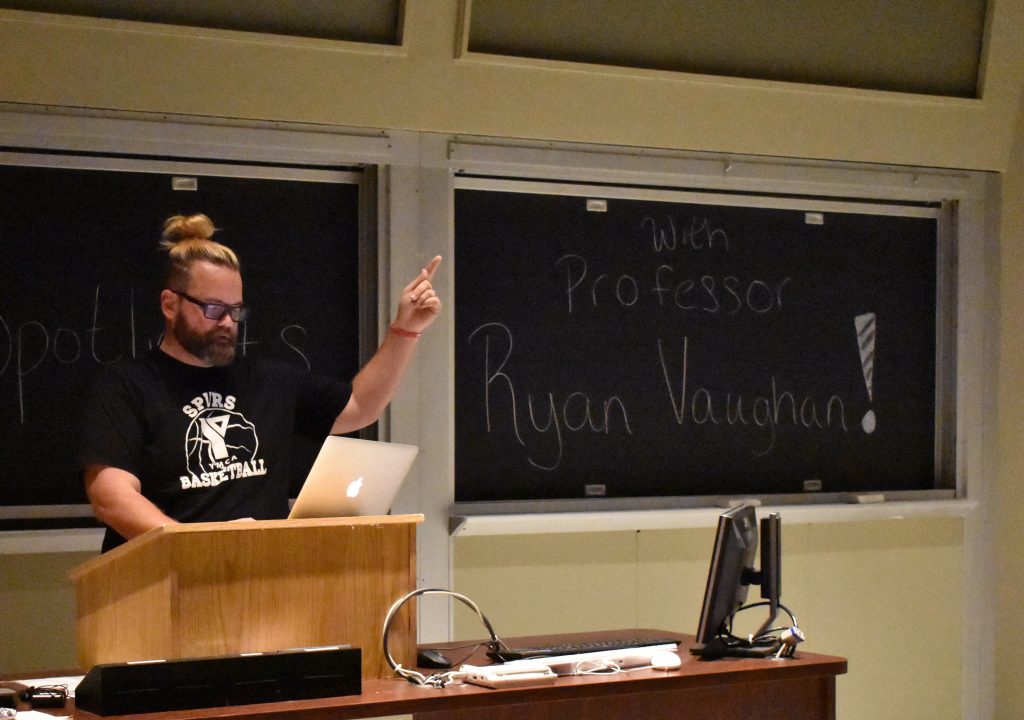
Ryan Vaughan, an adjunct professor of English, eagerly peeked in from behind the door at the front of the room. His beard, blond hair and glasses were the only visible features as he jokingly encouraged Libby Aliberti, Student Association (SA) vice president for programming and a senior majoring in biology, to continue her praise that he is one of the most sought-after professors at Binghamton University.
Vaughan, who has a perfect 5.0 rating on RateMyProfessors.com, was the first professor featured in this academic year’s SA Spotlight series on Thursday night in Lecture Hall 10. SA Spotlight is a series of presentations that grants students access to professors across disciplines who they may not otherwise have the opportunity to interact with. Vaughan, well-known for his humor, has taught 11 different courses at BU.
His lecture, titled “Laughter is Medicine: But It’s Probably Not the Best Medicine,” brought attention to the duality nature of medicine. According to Vaughan, medicine is supposed to make people feel better, but the pharmaceutical industry feeds on patients’ ailments. Vaughan said drug companies seek to convince people they’re suffering to sell more drugs and make more money.
Vaughan suggested that humor takes a different approach to healing pain: While people often use humor as an escape from harsh realities, quality humor can improve moods for a longer period of time.
“Most [quality] humor has meaning, something that it cares about,” Vaughan said. “It points at things that are fucked up and asks, ‘How can we unfuck this?’ That’s a more lasting cure to what ails us.”
Vaughan also addressed humor’s positive effects, including the desire to stay happy and long-term mental and cognitive health. Beyond the joy people receive from comedy, Vaughan advocated for something deeper. He said humor can be responsible for self-growth and change.
“Comedy, for me, was this portal to look at myself and change for the better,” Vaughan said. “The cognitive process of comedy puts you through this process of ‘why do you believe what you believe?’”
Aliberti, who organized the lecture, said Vaughan was a qualified individual to highlight due to his unique approach to discussing the social effects of entertainment.
“Vaughan is one of Binghamton’s most popular professors, but is frequently inaccessible due to upperclassmen filling up his classes, so we wanted to give more students a chance to experience his unique lectures,” Aliberti wrote in an email.
According to Vaughan, comedic dialogue often relaxes people’s sensitivity to certain topics and can promote tolerant, fruitful discussion. Vaughan encouraged this vehicle of communication as a way to talk through differences of opinion, especially in today’s political climate.
“You can have more enriching conversations about sexual assault, racism, sexism and homophobia if you are engaged in it through this idea of humor,” Vaughan said. “It adds a sort of buffer … and I think it is generally more productive to do that.”


